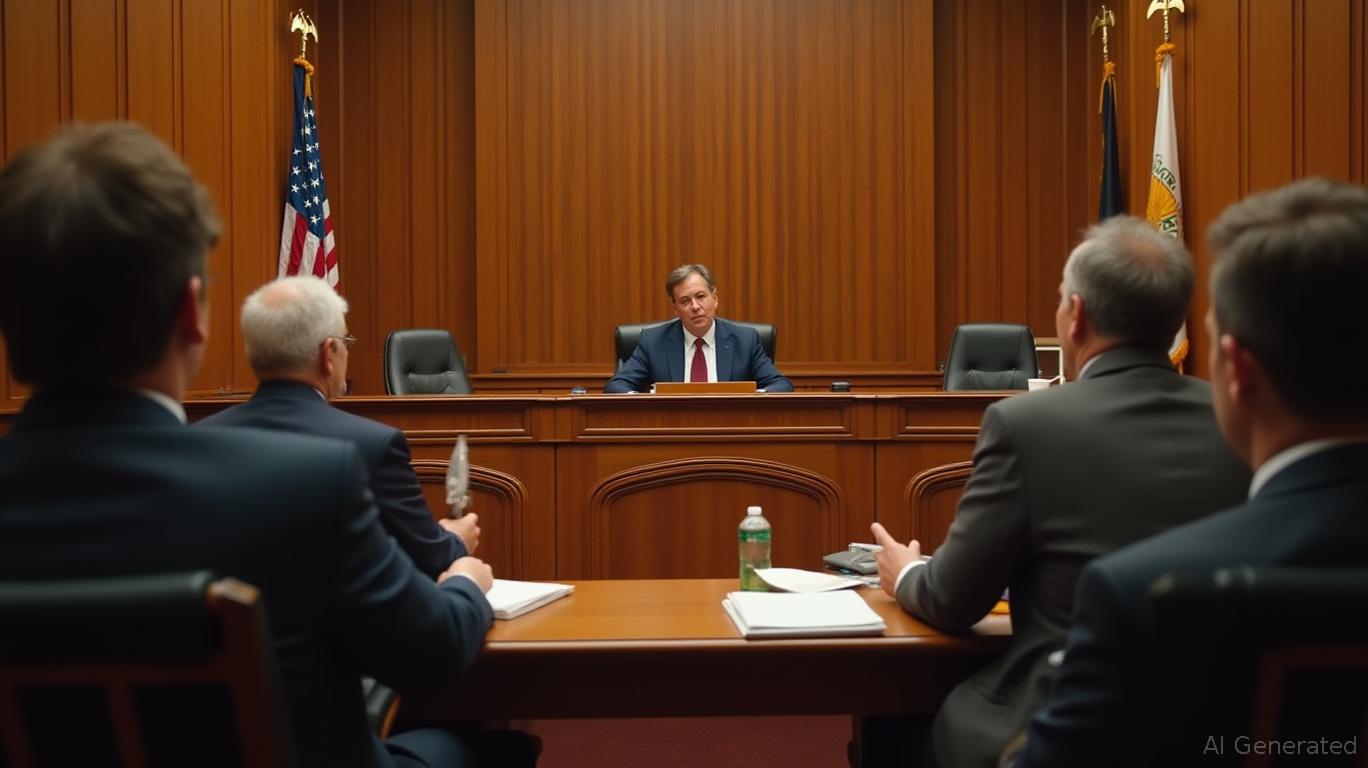California's climate windfall hits legal headwinds in big oil showdown
- California's 2022 $825M oil settlement aimed to fund climate programs but faces implementation delays. - Regulators paused fund disbursement over antitrust law concerns, risking climate project timelines. - Legal challenges could reshape settlement compliance, affecting renewable energy and wildfire preparedness efforts. - State officials emphasize the agreement remains valid but require months of legal review to align with federal regulations. - The case highlights corporate climate litigation complexit
In 2022, California celebrated a historic legal victory against the fossil fuel industry, marking a significant shift in its long-standing legal battle with major oil companies. At that time, the state reached a landmark settlement with five major oil firms, including BP , Chevron , ConocoPhillips , and others. Under the terms of the agreement, these companies agreed to pay up to $825 million in penalties and funding for climate change initiatives, including research, mitigation programs, and community resilience projects. The settlement was seen as a major win for the state, which had accused the companies of misleading the public and regulators about the environmental impact of their products.
The agreement was part of a broader legal strategy by California to hold oil companies accountable for their role in exacerbating climate change. The state had long argued that these corporations knew about the environmental risks of fossil fuels but failed to disclose them adequately. The settlement was also praised as a model for other jurisdictions seeking to pursue similar cases. Advocacy groups and environmental organizations lauded the agreement as a precedent-setting move in the fight against climate inaction.
However, recent developments have cast uncertainty over the implementation of the settlement. In a surprise move, California regulators have announced a temporary halt on the disbursement of funds from the settlement. The decision was prompted by concerns over the legal validity of the agreement, particularly its compliance with federal antitrust laws. While the state still considers the settlement a foundational agreement, legal experts have pointed to potential challenges from industry groups and federal agencies that could delay or alter the use of the funds.
The pause has raised questions about the future of the climate programs that were intended to benefit from the settlement. The initial plan included funding for renewable energy research, wildfire preparedness, and community-based climate adaptation projects in vulnerable areas. Delays in implementation could slow progress on these initiatives, which were seen as critical to achieving California’s ambitious emissions reduction targets. Environmental groups have expressed concern that the pause may lead to a loss of momentum in the state’s broader climate strategy.
Despite the halt, state officials have emphasized that the settlement itself remains in place and that the funds will eventually be used in accordance with the original agreement. Legal teams are now reviewing the settlement to ensure compliance with all relevant laws and regulations. This process could take several months, and no firm timeline has been set for when the funds will begin to flow. The state has also opened a dialogue with stakeholders to reassess the most effective way to allocate the money in alignment with current legal and policy priorities.
The situation highlights the complex legal and political landscape surrounding climate accountability. While California’s initial victory was celebrated as a turning point in the fight against big oil, the recent developments underscore the challenges of enforcing large-scale legal settlements in a highly regulated and politically charged environment. The outcome of this legal review could have broader implications for similar cases in other states and may influence the future of corporate climate litigation nationwide.
Source:

Disclaimer: The content of this article solely reflects the author's opinion and does not represent the platform in any capacity. This article is not intended to serve as a reference for making investment decisions.
You may also like
Bitcoin risks return to low $80K zone next as trader says dip 'makes sense'

Bitcoin ‘risk off’ signals fire despite traders’ view that sub-$100K BTC is a discount

Bitcoin’s end-of-year run to $100K heavily depends on Fed pivot outcomes

Ethereum’s major 2025 upgrade completed: a faster and cheaper mainnet has arrived
On December 4, Ethereum's second major upgrade of the year, Fusaka (corresponding to Epoch 411392), was officially activated on the Ethereum mainnet.
